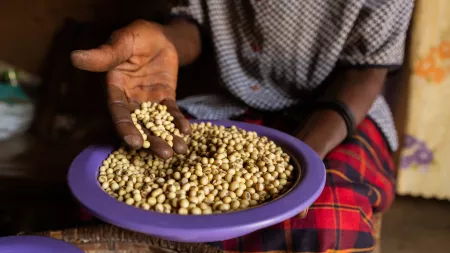An analysis by humanitarian organization CARE highlights, for the first time, a global link between gender inequality and food insecurity. Analyzing data from 2021, the report shows that across 109 countries, as gender inequality goes up, food security goes down.
Christine Campeau, CARE’s Global Advocacy Director – Food Systems, said, “Between 2018 and 2021, the number of hungry women versus hungry men grew 8.4 times, with a staggering 150 million more women than men hungry in 2021. And the implications of the escalation of conflict in Ukraine will make the situation even worse for women, who play a crucial role across food systems and in feeding their families and communities. Gender equality is highly connected to food and nutrition security at a local, national, and global level. To put it simply, the more gender inequality there is in a country, the hungrier and more malnourished people are.”
Of the four major global datasets on gender, including the World Bank’s Gender Data Portal, the only sex-disaggregated food indicators reinforce women’s role solely for their importance in reproduction: measuring anemia in women of childbearing age and counting stunting for children. Most food security datasets are strangely silent on gender.
Despite women being responsible for 90% of preparing and buying food, they are eating last and least.
Even when both men and women are technically food insecure, women often bear bigger burdens. For example, in Somalia, while men report eating smaller meals, women report skipping meals altogether.
Aisha, who lives in a village in eastern Somalia said, "I don't remember how old I really am, the drought has affected me mentally and physically so much that I can't remember. Most days we don't get anything to eat, other days we eat one meal."
In the World Bank Gender Data Portal on food and women, the only sex-disaggregated food data is related to the number of women who believe, or do not believe, that a husband is justified in beating his wife when she burns the food.
Ms Campeau said, “As women keep feeding the world, we must give them the right space in our data collection methods and analysis to make the gaps they encounter visible and work with women themselves to find solutions to those gaps. Global datasets should be publishing sex-disaggregated data on food — whether the focus is on gender or on food. It is time to update our global understanding of food security and gender inequality, and, local actors, including women’s organizations in crisis-affected communities, need to get the flexible funding and support desperately needed to protect women and girls from hunger-associated gender-based-violence and protection risks.”
